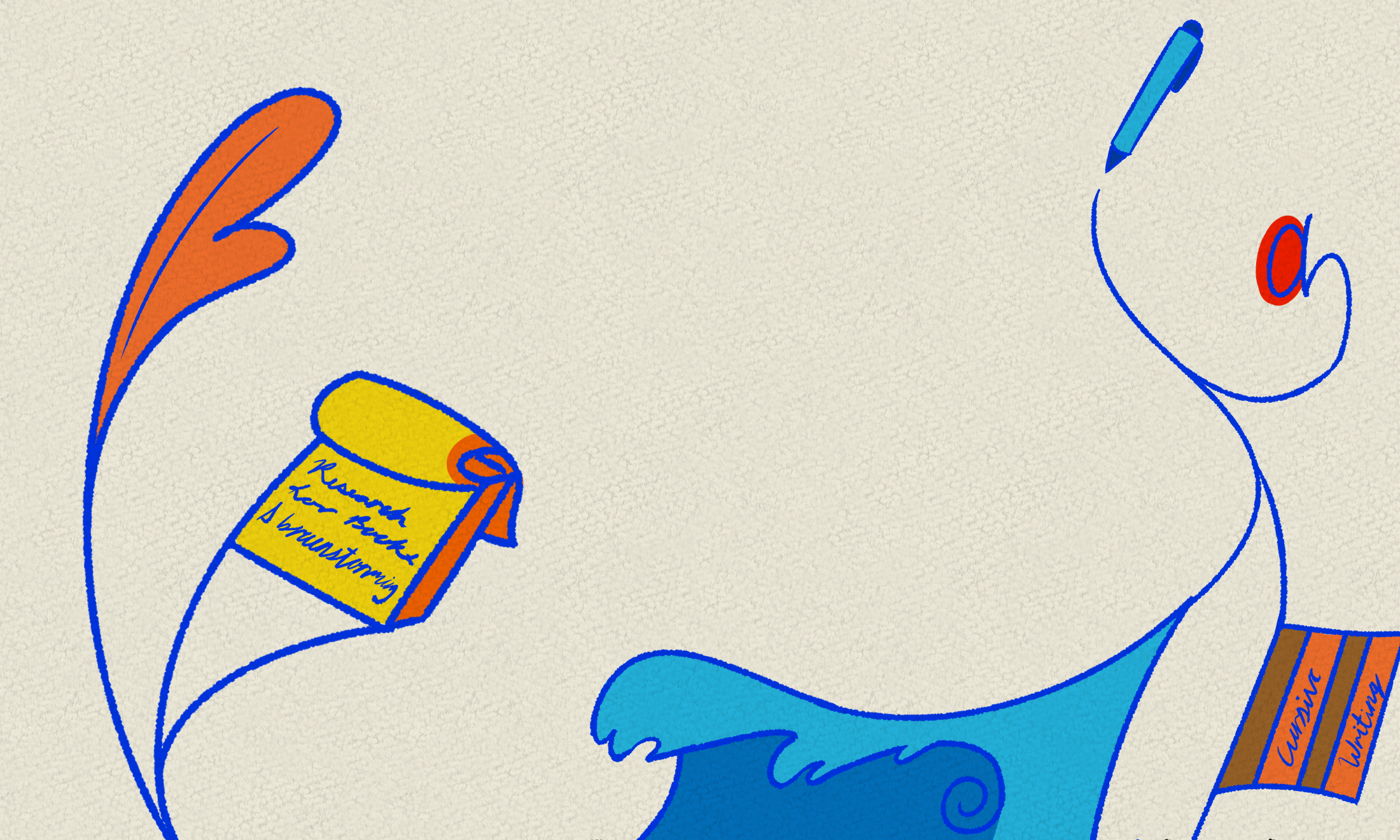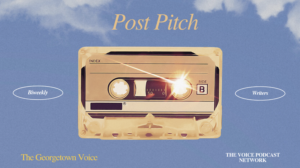When I was little, I hopped from dream job to dream job: fashion designer, golden retriever breeder, stablehand. As I grew up, these professions changed to doctor, human rights lawyer, and writer. I used to feel some embarrassment when I admitted that last aspiration to others, but also to myself. It seemed too lofty, pretentious, and unrealistic, especially surrounded by Georgetown’s future big-dog consultants and state representatives. But the idea of being a writer still lingers at the back of my mind. What has helped me embrace it—rather than shut it out—is Georgetown’s flourishing writing community.
Paul Elie’s Ignatius Seminar, The Search, marked my introduction to English classes at Georgetown. Part seminar and part workshop with a nonfiction lens, Professor Elie encouraged us to reflect on our own personal narratives, which enhanced our creativity and individual style; it was the first time I shared my work with people who were just as excited about words as I was.
Through The Search, I met Angelina Georgacopoulos (CAS ’26) and Savannah Sarafoglu (CAS ’26), who have both gone on to major in English. Since our first-year seminar, they’ve taken a wide range of creative and analytical writing courses. “A lot of the creative writing classes here are about developing you as an artist and storyteller,” Georgacopoulos said.
“The creative writing classes I’ve had are the ones I look forward to the most,” Sarafoglu added. Close-knit seminars and workshops help students overcome self-consciousness and anxieties about exploring the creative world. Not only do these classes force us to write outside of a purely academic mindset (because sometimes the econ quiz, IR paper, and Lau 2 fumes just aren’t conducive to storytelling), but they also carve out time for us to focus on honing our craft and narrative voice. Disparate students joined together through writing have grown into a veritable literary community at Georgetown.
Yet, classes are just the beginning. On-campus literary publications play a central role in bringing student writers together, creating spaces dedicated to sharing ideas and giving constructive feedback. The Anthem, to name one, is a student-run literary magazine that fosters an open and welcoming setting to spark creativity and experimentation. Submitting work to the publication doesn’t require any prior experience or dedication to English studies. “We have a lot of people from different majors,” Sarafoglu, who acts as The Anthem’s newsletter coordinator, said.
Instead of responding to submissions with outright rejection, The Anthem’s editors offer detailed comments to help revise the author’s work. “We’re trying to contribute to the community of writers at Georgetown,” Georgacopoulos, the magazine’s events director, said. “We give people a platform with the goal of uplifting writers on campus, especially new writers.”
Georgetown hosts more than 15 other student organizations dedicated to writing in all its forms. Interested in intersectional feminism, uplifting marginalized gender identities, and empowerment? Check out Bossier. Thinking of delving into international news? I would point you toward The Caravel and The Georgetown Journal of International Affairs (GJIA). Want to try your hand at sharp reviews and witty arts commentary? Flock to The Georgetown Independent (INDY). There truly is something for everyone.
The first club I joined at Georgetown was the Voice. Not only has the organization helped me grow as a writer and editor, but it has exposed me to the views of so many others. Their perspectives help foster my own, and in this collaborative environment, we are constantly building friendships and learning how to be better purveyors of “self-sponsored” writing.
According to Phil Sandick, associate teaching professor and director of the creative writing minor, campus publications specialize in “self-sponsored” writing since we produce expressive writing for ourselves and for our community—for pure joy. “That’s part of the fun of this—knowing that it’s not necessarily one short story that’s going to change the shape of the world. It’s knowing that these small creative acts of sharing a story with somebody else or writing toward a particular community does have a social effect. You can move people. You can inform and instruct, and have someone think differently,” Sandick said.
Established in 2016, the creative writing minor is a fairly new program within Georgetown’s English department. Sandick’s goal is to “foster student community as much as possible.” Alongside head administrator Chris Doyle, he does so by hosting author and alumni readings, pre-professional speaker panels, casual “write-ins,” events with the Maker Hub, and celebrations of student works.
Another cornerstone of the English department is the Lannan Center for Poetics and Social Practice. In March, Lannan collaborated with the Disability Cultural Center and the Prisons and Justice Initiative to host the Lannan Literary Festival, a three-day event featuring critically acclaimed writers and student performances. This year spotlighted “The Writer in the World” with authors including Tania James, Viet Thanh Nguyen, and Reginald Dwayne Betts. Rabih Alameddine, one of the key speakers and Georgetown’s current visiting chair, believes that “the role of the writer is to engage the world to the best of her ability.”
“The writer’s main purpose is as a witness—to see. We need writers who are strange and weird and see the world differently. And we need a lot of them,” said Professor Alameddine, under the light filtered through Gaston Hall’s stained glass windows.
Georgetown is brimming with witnesses and lenses. Student writers and publications are at the heart of what makes Georgetown the variegated, vibrant hub of literature and culture that it is. Writing—whether creative, academic, journalistic, or scientific—should be celebrated at Georgetown, and so should the spaces that make it possible.
I still don’t have a clear vision of my future, but should I choose the creative path, I have the curriculum and the support system to spur me along. If you’re doubting your writing capabilities, I urge you to put pen to paper (or fingertips to keyboard) and submit to the array of publications we have on campus. You might just end up becoming a writer yourself.





